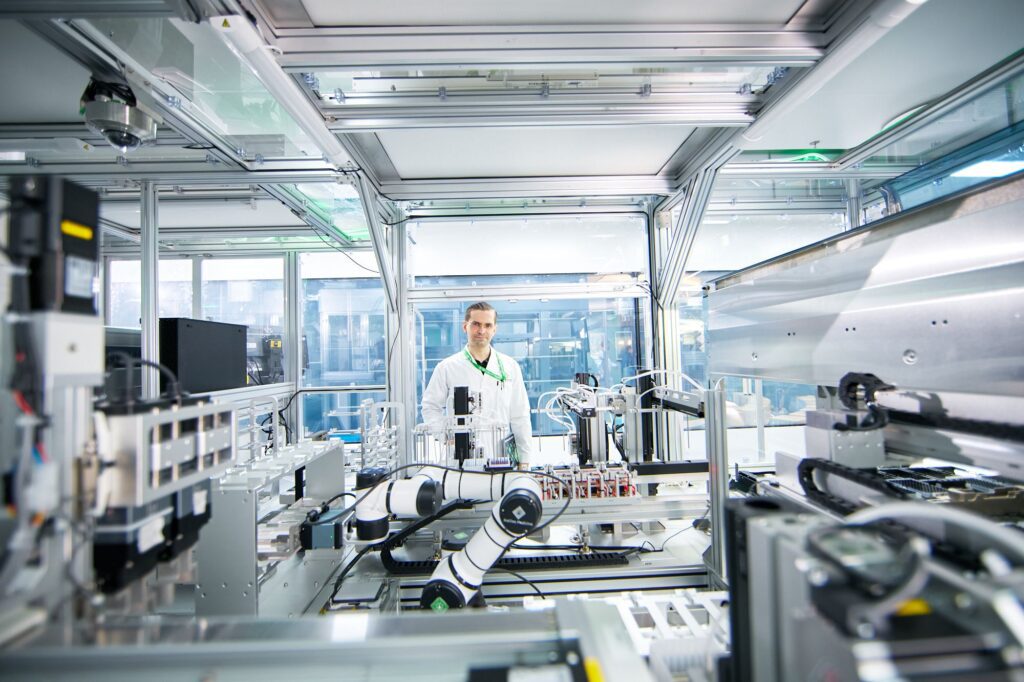AI is poised to transform drug discovery—and this film competition will show how.
While the use of generative artificial intelligence (AI) to develop new medicines may be one of the most exciting breakthroughs of our AI-enabled world, it’s still a relatively unknown story. A documentary “hackathon” called Docuthon is hoping to change that.

The contest invites participants from around the world to utilize footage captured by the generative AI-driven drug discovery company Insilico Medicine on its nearly 10-year journey to bring the first generative AI-designed drug for an AI-discovered target to patients in need.
Overcoming initial skepticism, AI drug discovery technology has advanced exponentially, giving rise to a number of promising startups in the space and generating interest and investment among top pharmaceutical partners. AI is poised to dramatically transform drug discovery as we know it. Docuthon is designed to share the story of how that transformation happened through the lens of one company that was an early pioneer in the industry.
Telling the Insilico Medicine story
In 2016, Dr. Alex Zhavoronkov, a young scientist and founder of a budding biotech company Insilico Medicine, began presenting at conferences on how generative AI could be applied to chemistry. Dr. Zhavoronkov had discovered that Generative Adversarial Networks (GANs)—combined with deep reinforcement learning, the same AI learning strategy used in AlphaGo—could generate novel molecules to treat disease.
He showed how generative AI could create new petals on images of flowers and then demonstrated how that same technique could be applied to the chemical space to create new molecules. The chemists were skeptical, but Zhavoronkov persisted.

In 2020, Insilico Medicine officially launched its generative AI drug design engine, Chemistry42, which utilizes deep learning architectures with reinforcement learning and applies it to the chemical space to generate novel molecular structures with predefined properties.
This platform has been most visibly validated through its lead program—a novel potentially first-in-class molecule for an AI-discovered target for the devastating progressive lung disease idiopathic pulmonary fibrosis (IPF). Aging is a common factor among those who develop the disease, and Insilico’s deep neural networks are trained on both aging and disease.

Insilico’s molecule, named INS018_055, demonstrated highly promising results in multiple preclinical studies. The compound improved myofibroblast activation, a contributor to the development of fibrosis, with a novel mechanism and was shown to have potential relevance in a broad range of fibrotic indications, not just IPF.
The company announced positive topline results for Phase 1 trials of INS018_055 in January, and the drug received Orphan Drug Designation from the FDA in early February. The company hopes to soon announce the launch of Phase 2 trials. When that happens, it will be the first drug for an AI-discovered target and designed by generative AI to reach Phase 2 clinical trials with patients.
Insilico’s journey demonstrates the incredible potential of generative AI when applied to biology and chemistry, and Dr. Zhavoronkov hopes that the Docuthon contest will generate new interest and excitement in the space by bringing in an added element of creative innovation.
About Docuthon
Docuthon invites filmmakers and film students to turn the footage of Insilico’s leading scientists, cutting-edge robotics lab, global offices and expert interviews with the likes of Nobel Prize laureate Michael Levitt, Ph.D., into a compelling short- or long-form documentary. Participants can enter one or more categories which include Best Feature, Best Short, Best Curated, and Most Creative, with prizes ranging between $4,000-$6,000 and the opportunity to win in more than one category.
The contest features a number of noteworthy judges, including Alvaro Alvarez Ricciardelli, a Spanish-Argentinian journalist, producer, filmmaker, and editor based between London and Barcelona, who produced and contributed to a variety of programs for the BBC. “I’m looking for how participants can bring things out from this story that will connect to people on a human level,” says Ricciardell.
Multi Emmy award-winning filmmaker Oren Rosenfeld will also be judging Docuthon. Based in Israel, he gained recognition for his storytelling and ability to bring light to important and often overlooked subjects.
Journalist and filmmaker Amelia Martyn-Hemphill, who tells multimedia stories about tech, innovation, and global health and works as a self-shooting filmmaker and podcast host for the BBC and Fast Company, will also serve as a judge. “We need more people to feel inspired about all the innovation that’s happening around the world,” she says. “Using AI for drug discovery and development is going to be a game changer. It feels like we’re on the cusp of some really huge breakthroughs when it comes to treating disease, to living longer, to improving people’s quality of life.”
Details and registration can be found at https://insilico.com/docuthon.




